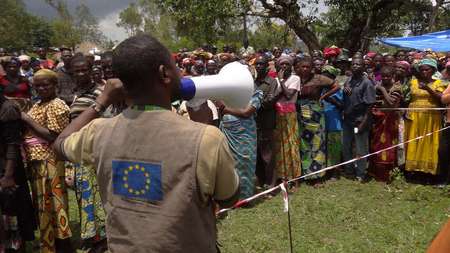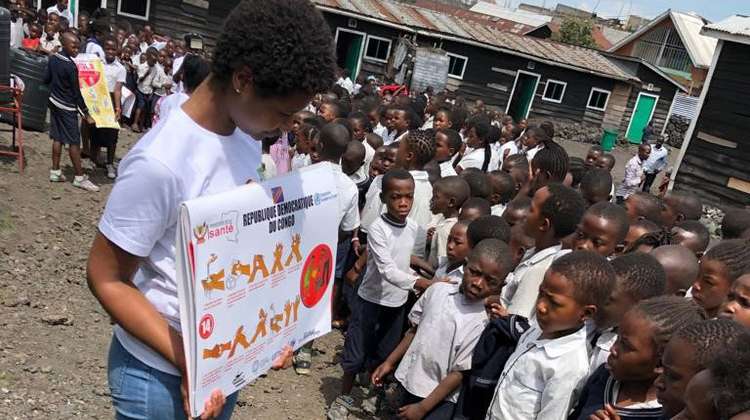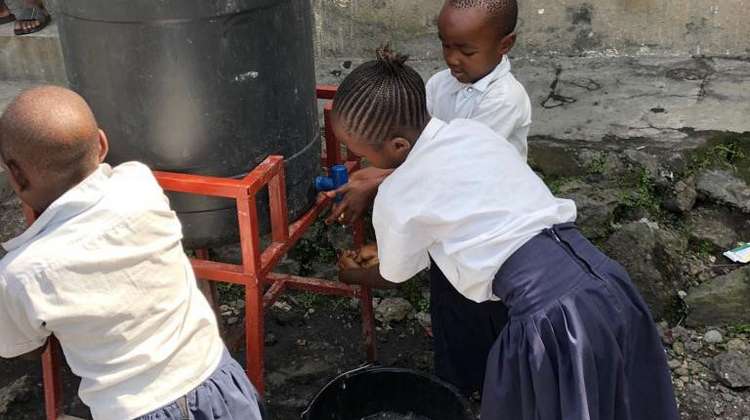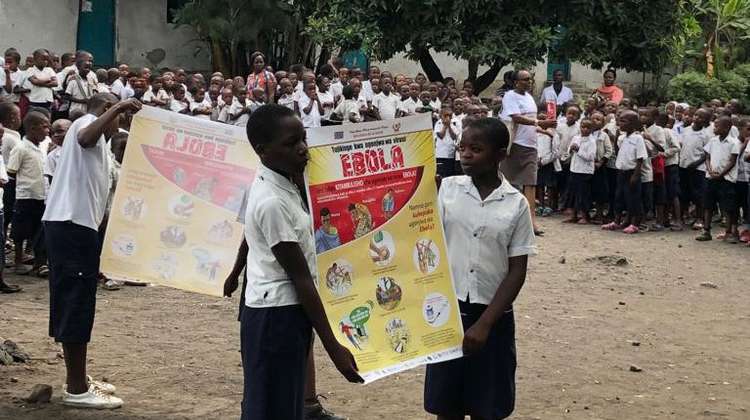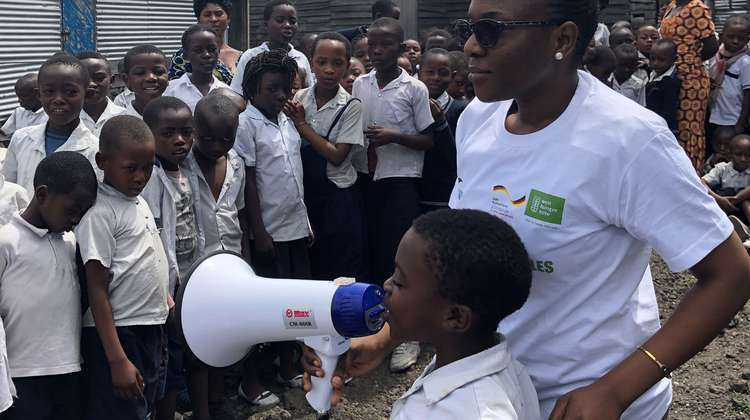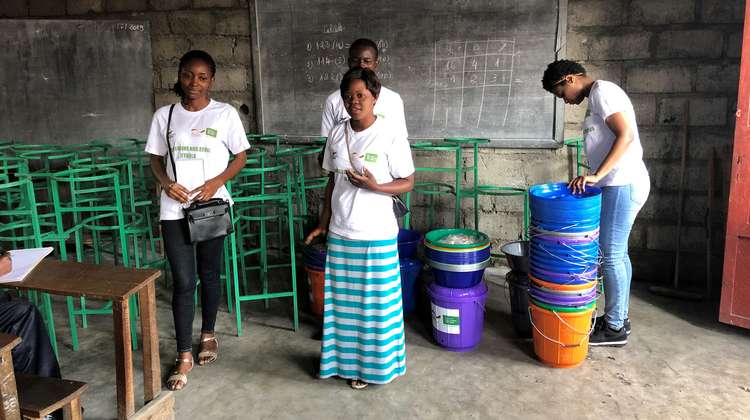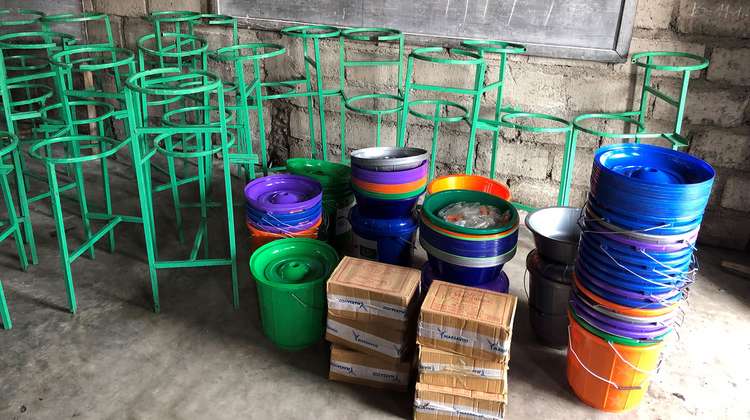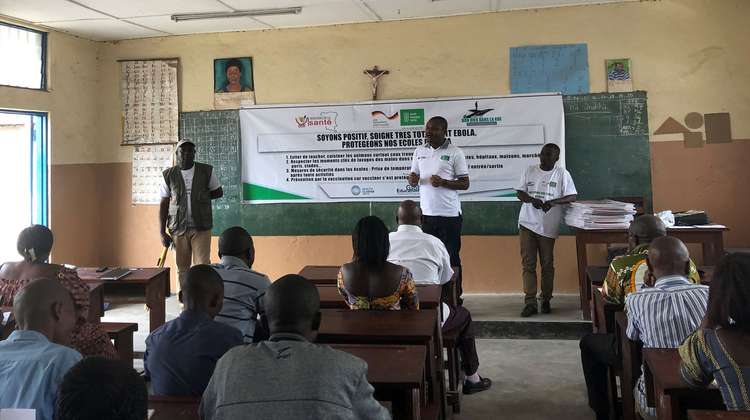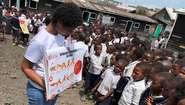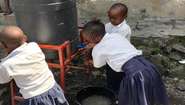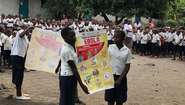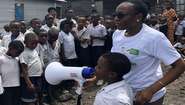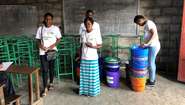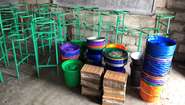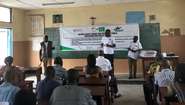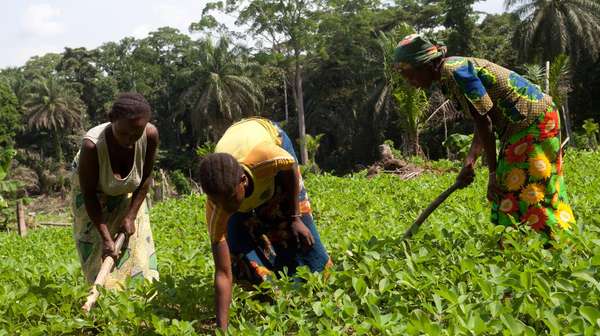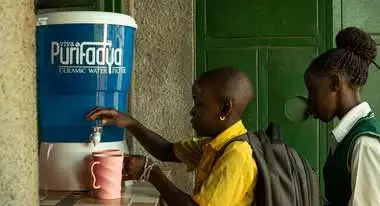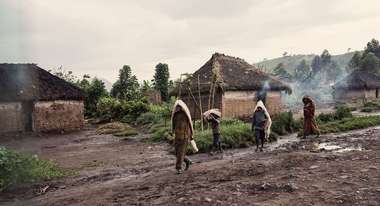Peace in Congo is fragile. Agricultural projects and road construction offer a glimpse of a better future.
+++ Current Ebola situation: Health threat remains +++
It was only in November 2020 that the last Ebola outbreak in the northwest of the Democratic Republic was officially declared over. At the beginning of February 2021, the country reported some Ebola cases in the North Kivu region. It is not yet clear whether this marks the beginning of a new outbreak or whether these are isolated cases. Our colleagues on the ground are monitoring the situation closely. We are currently preparing new Ebola protection measures in Congo, such as the construction of isolation wards and latrines, and the distribution of hygiene kits to contacts of Ebola patients.
The health situation in the country is very tense and has been exacerbated by the coronavirus since last year.
From 2018 to 2020, people in the north-east of the Democratic Republic of Congo experienced the worst outbreak of Ebola in the country's history. 3,481 people got infected, 2,299 died. The outbreak was officially declared over at the end of June.
Ebola outbreaks happen repeatedly in the Democratic Republic of Congo. Containment of the virus is severely hindered by the war between rebel groups that has been going on for 20 years. For example, the fighting prevents vital aid from reaching the population. Many aid workers are themselves attacked and fear for their lives. All this in a country where some 19.6 million people do not know how to feed themselves. The heavy fighting makes the difficult food situation even worse.
Welthungerhilfe works tirelessly for the local people. In addition to long-term nutrition projects, the focus is on Ebola prevention. As part of this project, young people and local health staff have received training in Ebola prevention, for example. There they learned how to identify the disease and how to isolate the infected as quickly as possible.
How Welthungerhilfe tackled Ebola
- At least 600,000 people in the health zones of Goma, Karisimbi, Nyiragongo and Rutshuru have benefitted from the measures.
- Young people and local health workers received education and training about the dangers of the disease. They visited villages to pass on their knowledge about Ebola and about the risks of infection.
- In cooperation with local community leaders we did door-to-door home visits to educate people and raise awareness.
- Hand washing stations with chlorinated water were constructed in public places.
- Journalists received communication training on Ebola.
- Our local partner organisation, Bon Dieu Dans La Rue, provided awareness-raising work in nursery and elementary schools in priority health areas.
- All Welthungerhilfe staff are knowledgable about the disease. At food distributions, they make sure that all participants disinfect their hands and that there is no body contact between them.
The project was funded by the Federal Foreign Office (AA).
In addition to the Ebola prevention measures, Welthungerhilfe continues its nutritional projects. The aim is to support local people in finding a sustainable way out of poverty and hunger. They learn about beekeeping, vegetable growing and the cultivation of trees, for example. They get the chance to earn a regular income and to develop new livelihoods.
Support Welthungerhilfe in offering a better future to the people of the Democratic Republic of Congo – free from hunger and poverty. Your donation is an important contribution on this path.




